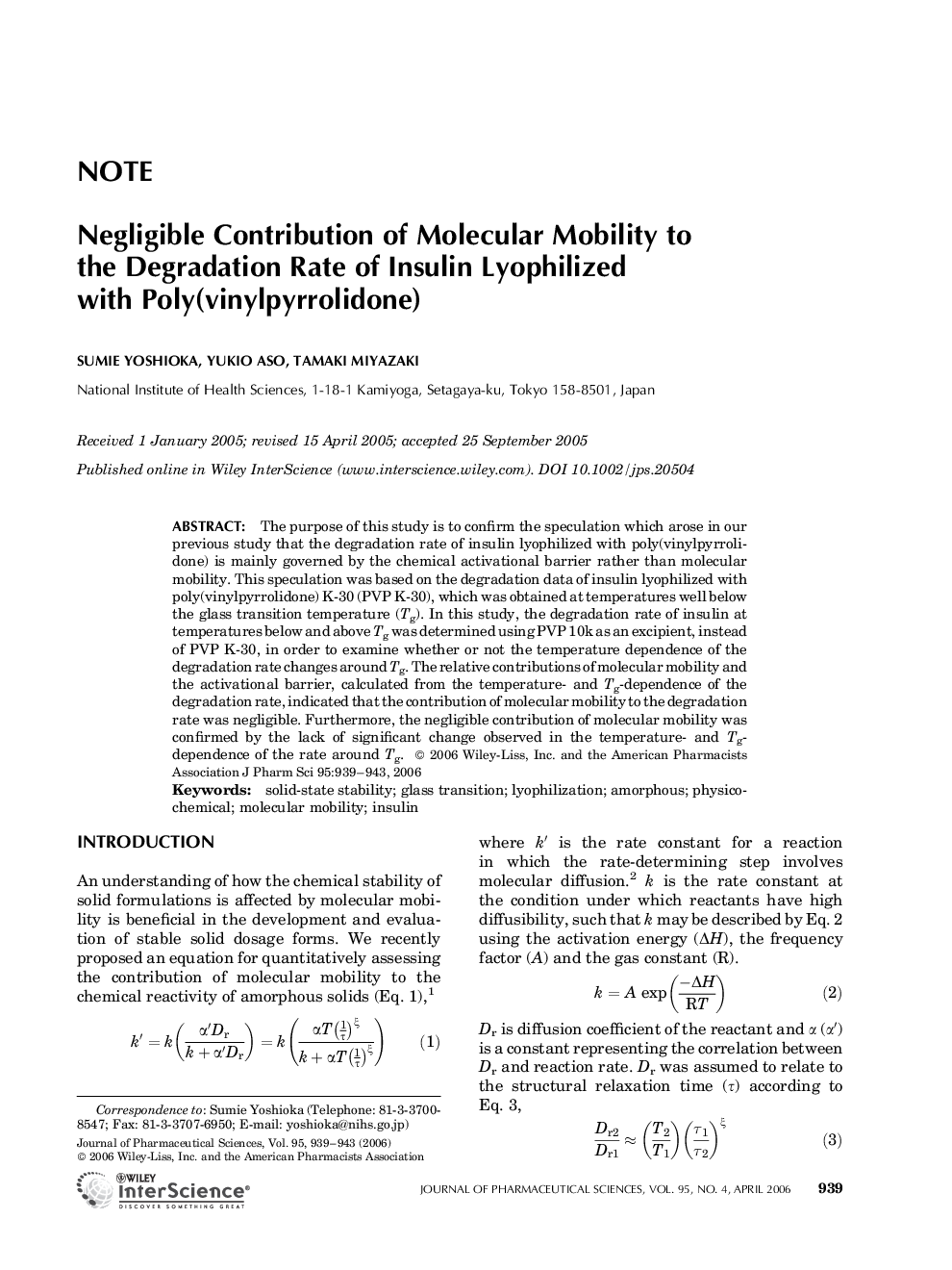| Article ID | Journal | Published Year | Pages | File Type |
|---|---|---|---|---|
| 2488042 | Journal of Pharmaceutical Sciences | 2006 | 5 Pages |
Abstract
The purpose of this study is to confirm the speculation which arose in our previous study that the degradation rate of insulin lyophilized with poly(vinylpyrrolidone) is mainly governed by the chemical activational barrier rather than molecular mobility. This speculation was based on the degradation data of insulin lyophilized with poly(vinylpyrrolidone) K-30 (PVP K-30), which was obtained at temperatures well below the glass transition temperature (Tg). In this study, the degradation rate of insulin at temperatures below and above Tg was determined using PVP 10k as an excipient, instead of PVP K-30, in order to examine whether or not the temperature dependence of the degradation rate changes around Tg. The relative contributions of molecular mobility and the activational barrier, calculated from the temperature- and Tg-dependence of the degradation rate, indicated that the contribution of molecular mobility to the degradation rate was negligible. Furthermore, the negligible contribution of molecular mobility was confirmed by the lack of significant change observed in the temperature- and Tg-dependence of the rate around Tg.
Keywords
Related Topics
Health Sciences
Pharmacology, Toxicology and Pharmaceutical Science
Drug Discovery
Authors
Sumie Yoshioka, Yukio Aso, Tamaki Miyazaki,
